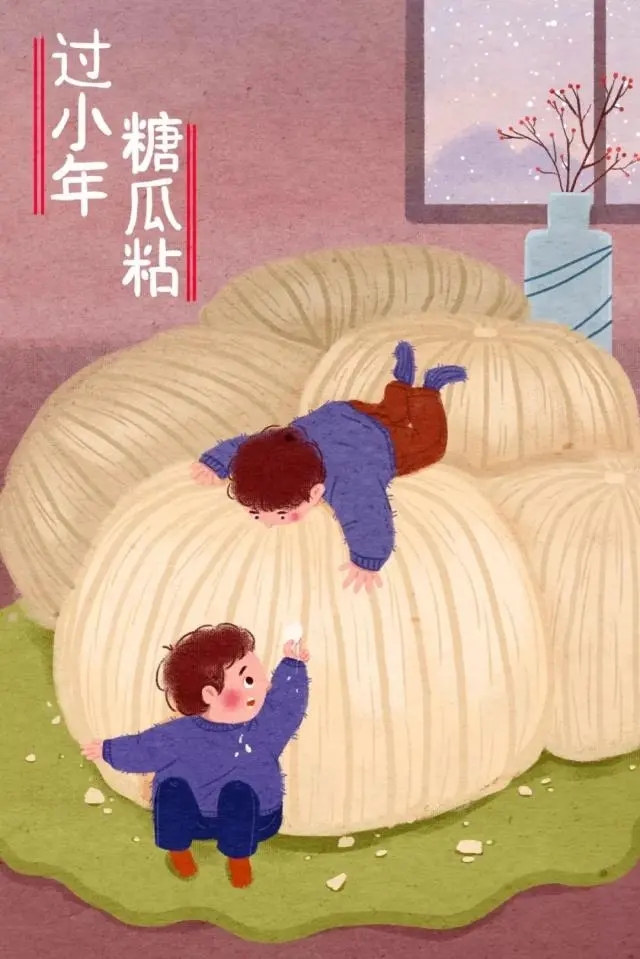Xiaonian – Tanggua sticky The song “23 Tanggua Sticky” is: Don’t be greedy, children. After Laba, it’s New Year. Laba Congee, a few days later, Lilila, 23, Tanggua sticky; 24、 Sweep the house; 25、 Grinding tofu; 26、 Stewed lamb; 27、 Slaughter roosters; 28、 Hair the noodles; 29、 Steamed Mantou; Thirty nights make a night’s fuss, and on the first day of the Chinese New Year, there are twists and turns!
The song “23 Tanggua Sticky” is: Don’t be greedy, children. After Laba, it’s New Year. Laba Congee, a few days later, Lilila, 23, Tanggua sticky; 24、 Sweep the house; 25、 Grinding tofu; 26、 Stewed lamb; 27、 Slaughter roosters; 28、 Hair the noodles; 29、 Steamed Mantou; Thirty nights make a night’s fuss, and on the first day of the Chinese New Year, there are twists and turns!
The 23rd day of the twelfth lunar month, also known as Xiaonian, is a day in traditional Chinese Han culture where people worship the stove, sweep away dust, and eat stove candy. In folk songs, “23, Tanggua Sticky” refers to the worship of the Kitchen God on the 23rd or 24th day of the twelfth lunar month each year. There is a saying that “officials, people, four boats, and five households”, which means that the government holds the worship of the Kitchen God on the 23rd day of the twelfth lunar month, while ordinary households hold it on the 24th day, and water households hold it on the 25th day. Later, it gradually evolved into “23, celebrating the Chinese New Year”.
According to the folk legend of the Han ethnic group, the Kitchen God went up to heaven to accuse humanity of sins. Once accused, the life expectancy for major crimes would be reduced by 300 days, and for minor crimes it would be reduced by 100 days. In the “Tai Shang Gan Gan Pian”, there is also a description of “the commander follows the severity of the situation and takes away the calculation of the records.”. Siming refers to the Kitchen God, which is counted as one hundred days, and Ji refers to twelve years. Here, the punishment for serious crimes has been increased to twelve years of reduced lifespan. So when offering sacrifices to the stove, it is important to touch the Kitchen God and ask him to hold his hand high.
Post time: Feb-02-2024






